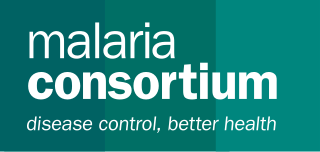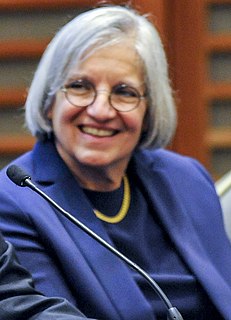
Malaria is a mosquito-borne infectious disease that affects humans and other animals. Malaria causes symptoms that typically include fever, tiredness, vomiting, and headaches. In severe cases, it can cause yellow skin, seizures, coma, or death. Symptoms usually begin ten to fifteen days after being bitten by an infected mosquito. If not properly treated, people may have recurrences of the disease months later. In those who have recently survived an infection, reinfection usually causes milder symptoms. This partial resistance disappears over months to years if the person has no continuing exposure to malaria.

The World Health Organization (WHO) is a specialized agency of the United Nations responsible for international public health. The WHO Constitution, which establishes the agency's governing structure and principles, states its main objective as "the attainment by all peoples of the highest possible level of health." It is headquartered in Geneva, Switzerland, with six semi-autonomous regional offices and 150 field offices worldwide.

The United Nations Development Programme (UNDP) is the United Nations' global development network. It promotes technical and investment cooperation among nations and advocates for change and connects countries to knowledge, experience and resources to help people build a better life for themselves. The UNDP provides expert advice, training and grants support to developing countries, with increasing emphasis on assistance to the least developed countries. UNDP works with nations on their own solutions to global and national development challenges. As they develop local capacity, they draw on the people of UNDP and its wide range of partners. However UNDP offers to help only if the different nations request it to do so.
The Global Fund to Fight AIDS, Tuberculosis and Malaria is an international financing and partnership organization that aims to "attract, leverage and invest additional resources to end the epidemics of HIV/AIDS, tuberculosis and malaria to support attainment of the Sustainable Development Goals established by the United Nations". This multistakeholder international organization maintains its secretariat in Geneva, Switzerland. The organization began operations in January 2002. Microsoft founder Bill Gates was one of the first donors to provide seed money for the partnership.
The Deutsche Gesellschaft für Internationale Zusammenarbeit (GIZ) GmbH, often shortened to simply GIZ, is a German development agency headquartered in Bonn and Eschborn that provides services in the field of international development cooperation. GIZ mainly implements technical cooperation projects of the Federal Ministry for Economic Cooperation and Development (BMZ), its main commissioning party, although it also works with the private sector and other national and supranational government organizations on a public benefit basis. According to the OECD, 2019 official development assistance from Germany decreased 1.4% to USD 23.8 billion. In its activities GIZ seeks to follow the paradigm of sustainable development, which aims at economic development through social inclusion and environmental protection. GIZ offers consulting and capacity building services in a wide range of areas, including management consulting, rural development, sustainable infrastructure, security and peace-building, social development, governance and democracy, environment and climate change, and economic development and employment.
The Muslim Public Affairs Council (MPAC) is a national American Muslim advocacy and public policy organization headquartered in Los Angeles and with offices in Washington, D.C. MPAC was founded in 1988.
MPAC or Mpac may refer to:
Sir Richard George Andrew Feachem, KBE, FREng is Professor of Global Health at both the University of California, San Francisco, and the University of California, Berkeley, and Director of the Global Health Group at UCSF Global Health Sciences. He is also a Visiting Professor at the University of London and an Honorary Professor at the University of Queensland.
The Health Metrics Network (HMN) was a global health partnership focused on strengthening health information systems in low and middle income countries, launched in May 2005 during the 58th session of the World Health Assembly (WHA) and dissolved on 31 May 2013. Hosted by the World Health Organization (WHO) in Geneva, Switzerland, the HMN's stated purpose was to make available timely and accurate health information by encouraging joint funding and development of country health information systems, to improve health and save lives.
The Ministry of National Health Services, Regulation and Coordination is a cabinet level ministry of the Government of Pakistan with responsibility for national public health.

Malaria Consortium is an international non-profit organisation specialising in the comprehensive control of malaria and other communicable diseases – particularly those affecting children under five.

A landlocked sub-Saharan country, Burkina Faso is among the poorest countries in the world—44 percent of its population lives below the international poverty line of US$1.90 per day —and it ranks 185th out of 188 countries on UNDP's 2016 Human Development Index .Rapid population growth, gender inequality, and low levels of educational attainment contribute to food insecurity and poverty in Burkina Faso. The total population is just over 20 million with the estimated population growth rate is 3.1 percent per year and seven out of 10 Burkinabe are younger than 30. Total health care expenditures were an estimated 5% of GDP. Total expenditure on health per capita is 82 in 2014.
The Center for Disease Dynamics, Economics & Policy (CDDEP) is a public health research organization with headquarters in Washington, D.C. and New Delhi. Its mission is "to produce independent, multidisciplinary research to advance the health and well-being of human populations in the United States and around the world."

Michel Kazatchkine is a French physician, diplomat and advocate who is best known for his work in international AIDS treatment issues. From February 2007 to March 2012 he was director of The Global Fund to Fight AIDS, Tuberculosis and Malaria. On July 20, 2012, UN Secretary-General Ban Ki-moon appointed him as his United Nations Special Envoy for HIV/AIDS in Eastern Europe and Central Asia.
The Affordable Medicines Facility-malaria (AMFm) is a financing mechanism intended to expand access to affordable and effective antimalarial medication. It works primarily through the commercial private sector, in addition to the public and non-governmental organization sectors which are the more traditional routes for development assistance in malaria control. Its goal is to drive down the price of the most effective malaria medicines so that millions of people can afford to buy them. The program has been called "one of the most important recent advances in fighting malaria" and "a triumph of international cooperation." The AMFm is hosted and managed by the Global Fund to Fight AIDS, Tuberculosis and Malaria in Geneva, Switzerland.
The Scientific and Technical Advisory Panel (STAP) is an independent advisory body established by the United Nations Global Environment Facility (GEF) in 1995. Seven expert advisers provide the GEF with up to date, authoritative and globally representative science in the areas of biological diversity, climate change, desertification and persistent organic pollutants.
Dalberg Global Development Advisors is a strategy and policy advisory firm. Founded in 2001, the company specializes in global development. Dalberg has worked in over 90 countries with over 400 clients including governments, foundations, international agencies, non-governmental organizations, and Fortune 500 companies. Its mission is to raise living standards in developing countries and mobilize effective responses to the world's most pressing issues.
The President's Malaria Initiative (PMI) is a U.S. Government initiative to control and eliminate malaria, one of the leading global causes of premature death and disability. The initiative was originally launched by U.S. president George W. Bush in 2005, and has been continued by each successive U.S. president.

Dyann F. Wirth is an American immunologist currently the Richard Pearson Strong Professor of Infectious Diseases at Harvard T.H. Chan School of Public Health.
Azra Catherine Hilary Ghani is a British epidemiologist who is a professor of Infectious Disease Epidemiology at Imperial College London. Her research considers the mathematical modelling of infectious diseases, including malaria, bovine spongiform encephalopathy and coronavirus. She has worked with the World Health Organization on their technical strategy for malaria. She is associate director of the MRC Centre for Global Infectious Disease Analysis.





